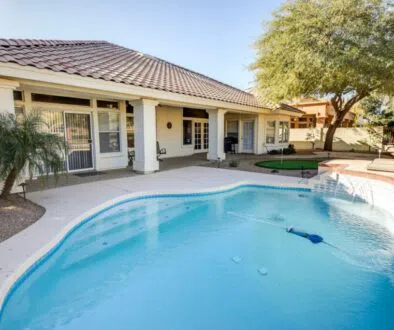Why Is My Pool Not Holding Chlorine? A Quick Guide
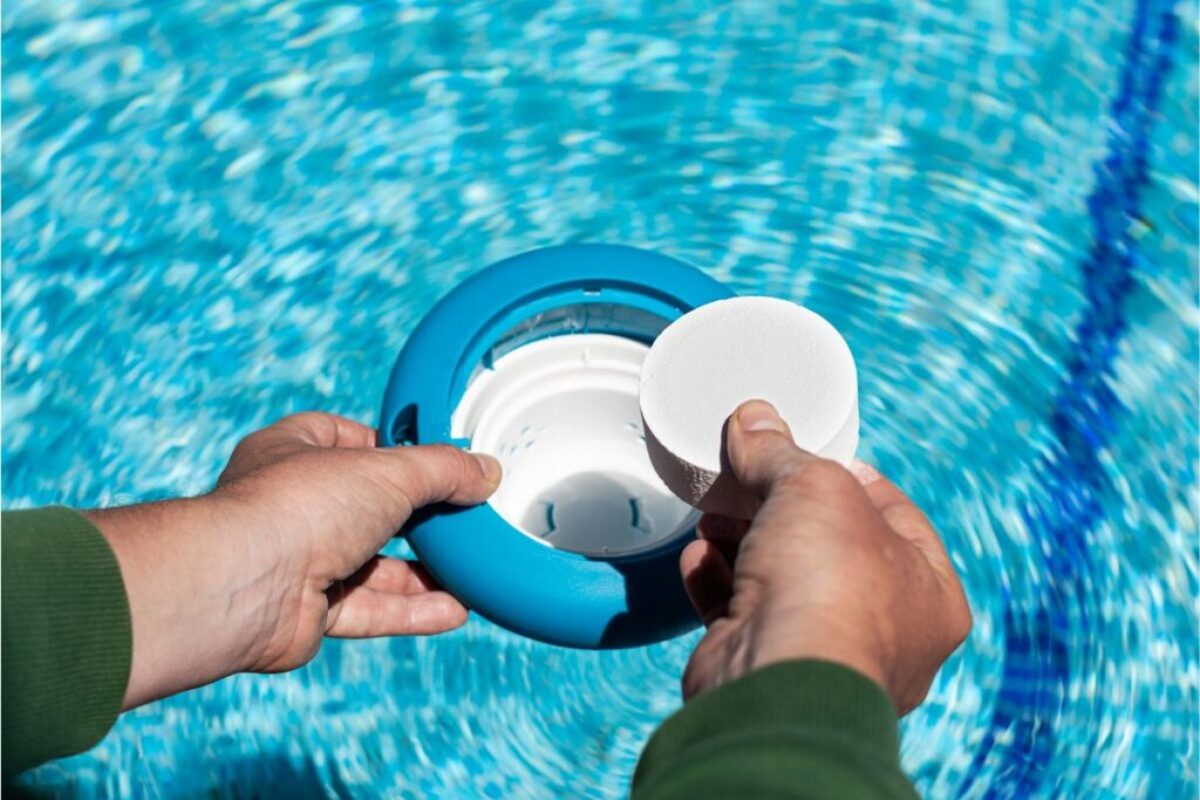
Published Oct. 14, 2024
Maintaining a healthy pool can be challenging, especially when the pool is not holding chlorine. Chlorine is crucial for keeping water clean, killing bacteria, and preventing algae growth. If your pool’s chlorine levels drop quickly, it’s time to investigate why. This issue can lead to murky water, irritation, and health risks. This article will explore common reasons and offer practical solutions to ensure your pool remains balanced.
Understanding How Chlorine Works
Chlorine is a chemical sanitizer that disinfects pool water. It kills harmful bacteria and prevents algae. However, due to various factors, chlorine can dissipate quickly. Chlorine reacts with contaminants like sweat, oils, and dirt. The sun’s UV rays also break down chlorine, reducing its effectiveness. Keeping chlorine stable is essential to prevent bacteria from flourishing.
Pool Not Holding Chlorine: Common Cause
If your pool isn’t holding chlorine, several reasons could be behind it. First, high levels of contaminants could overwhelm the chlorine. If your pool hasn’t been cleaned properly, dirt and debris will consume the chlorine faster. Another possibility is that your stabilizer (cyanuric acid) levels are too low. Without enough stabilizers, sunlight will destroy chlorine quickly.
The Role of Cyanuric Acid in Chlorine Retention
Cyanuric acid is a chemical that protects chlorine from the sun’s UV rays. When cyanuric acid levels are too low, your chlorine will break down faster. On the other hand, if the levels are too high, it can cause a “chlorine lock,” where the chlorine becomes ineffective. You must keep the cyanuric acid levels balanced to ensure proper chlorine retention.
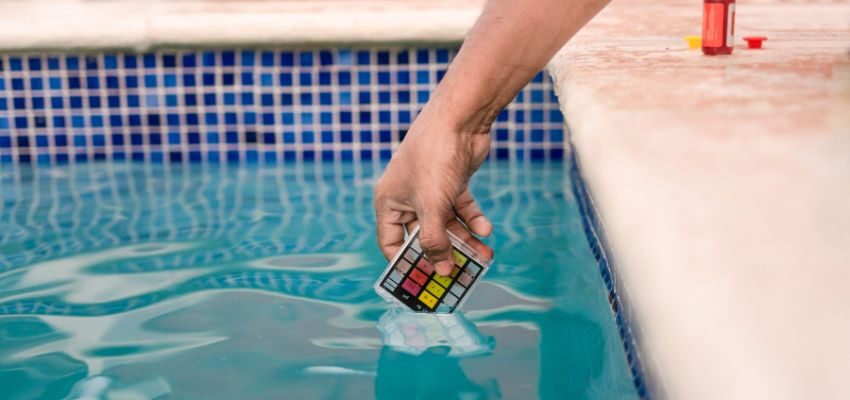
Testing Your Pool Water
Testing your pool water regularly helps you keep track of chlorine levels. You can use pool test strips or digital testers. These tests will also measure other important chemicals like pH and cyanuric acid. Knowing the state of your pool chemistry is essential to fixing any problems before they get worse. Aim to test your water at least twice a week, especially in the summer.
High Bather Load and Its Effect on Chlorine
A high number of swimmers can quickly reduce your chlorine levels. Sweat, sunscreen, and oils from the body introduce organic contaminants into the water, overwhelming your pool’s sanitizer and causing chlorine to deplete faster. If your pool frequently hosts a lot of swimmers, consider adding chlorine more often or using a shock treatment.
The Impact of Weather on Chlorine Levels
The weather can greatly affect how well your pool holds chlorine. Hot, sunny days can cause chlorine to evaporate faster due to UV exposure, and heavy rain can dilute your pool’s chlorine levels. It’s important to check your chlorine levels after big weather events and adjust accordingly.
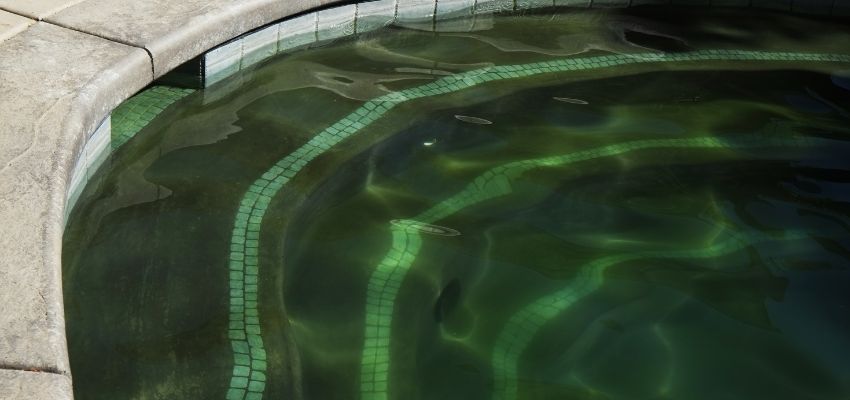
The Problem with Algae Growth
If you notice algae growing in your pool, this could be a sign that your chlorine is being consumed too quickly. Algae feed on chlorine, which reduces its levels rapidly. Even if you can’t see the algae yet, it might be starting to grow if your chlorine levels drop faster than usual. Algaecides and shock treatments can help eliminate the problem.
Pool pH Levels and Chlorine Effectiveness
The pH level of your pool water is crucial for chlorine to work effectively. If the pH is too high or too low, it can make the chlorine less effective. Ideally, your pool’s pH should be between 7.2 and 7.6. Regularly testing and adjusting the pH will ensure your chlorine performs properly.
Organic Materials and Chlorine Consumption
Leaves, bugs, and other debris can absorb chlorine in the pool, making it less available to sanitize the water. If you do not regularly clean your pool, these organic materials will use chlorine quickly. Skimming the pool daily and using a pool cover can help reduce the debris entering your water.
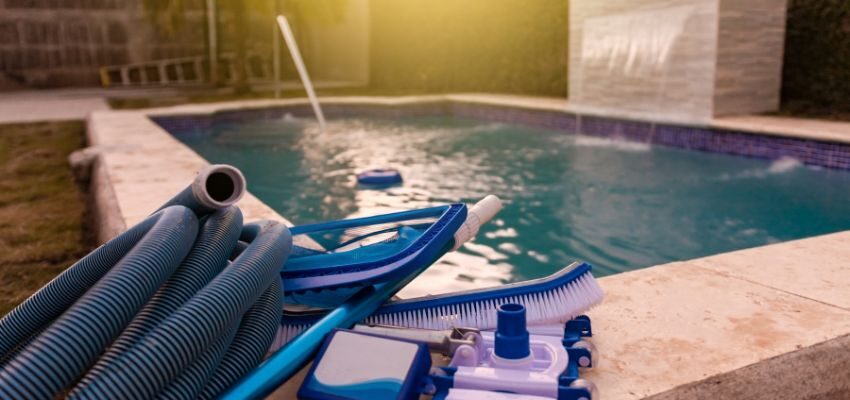
Is Your Pool Filter Functioning Properly?
A malfunctioning pool filter can affect chlorine levels. If your filter isn’t working properly, it won’t effectively remove contaminants from the water, causing the chlorine to work harder and deplete faster. Ensure your pool filter is clean and in good condition to support healthy chlorine levels.
How Often Should You Shock Your Pool?
Pool shocking is essential when chlorine levels are unstable. It helps eliminate built-up contaminants, kill bacteria and clear the water. You should shock your pool once a week or whenever the chlorine isn’t lasting as long as it should. This will give your pool a fresh start and help maintain chlorine stability.
How Temperature Affects Chlorine Dissipation
Higher temperatures cause chlorine to evaporate faster, so you may need to add chlorine more frequently in a hot climate. Warmer water temperatures also encourage bacteria and algae growth, so your chlorine must work harder. Keeping your pool cool and shaded can help maintain chlorine levels.
Using Chlorine Stailizers Effectively
A chlorine stabilizer, such as cyanuric acid, helps protect chlorine from the sun. However, it’s important to use the right amount. Too little, and your chlorine will burn off quickly; too much will become ineffective. Always follow recommended guidelines for stabilizer levels based on your pool size and needs.
Saltwater Pools and Chlorine Issues
Even saltwater pools need chlorine to stay clean. Saltwater systems generate chlorine through a salt chlorinator. Your chlorine levels will drop if your salt system isn’t working properly. Regular maintenance of your salt system is necessary to ensure it produces enough chlorine to keep your pool clean and safe.
Expert Tips to Keep Your Pool Chlorine Balanced
Follow these expert tips to keep your chlorine levels stable: Regularly clean and vacuum your pool to reduce debris. Monitor pH and cyanuric acid levels closely. Use a pool cover to reduce sunlight exposure. Shock your pool weekly, especially in hot water or after heavy use. These steps will help your chlorine last longer and keep your pool clear.
Frequently Asked Questions (FAQs)
Why is my pool losing chlorine so fast?
Your pool could lose chlorine quickly due to high UV exposure, bather loads, or improper chemical balance.
How do I test for chlorine levels in my pool?
You can use pool test strips or digital water testers to check chlorine levels regularly.
What does it mean if my pool has a “chlorine lock”?
Chlorine lock happens when stabilizer levels are too high, preventing chlorine from working properly.
Can I swim in a pool with low chlorine levels?
Swimming in a pool with low chlorine levels is unsafe, as bacteria and algae could be present.
How can I prevent algae from using up my chlorine?
Regularly clean your pool and shock it when necessary to keep algae growth under control.
Is it possible for too much rain to lower chlorine levels?
Heavy rain can dilute chlorine levels, so testing the water after storms is essential.
Final Thoughts
A pool that does not hold chlorine can be frustrating, but you can restore balance by identifying the causes and applying these solutions. Regular maintenance, chemical testing, and proper cleaning are key. By closely monitoring your pool’s chemical levels, you’ll enjoy crystal-clear water all season.
Hire Boca’s Favorite Pool Builders
Excel Pool and Patio Solutions is your trustworthy provider of pool services in Boca Raton. We are experts in pool and patio remodeling and can handle your resurfacing needs as well. Our technicians are vetted and trained for your guaranteed satisfaction. Get to know us by browsing our website or reaching out to us with any questions.
Contact our team today to request a free estimate for pool construction, maintenance, repairs and more.
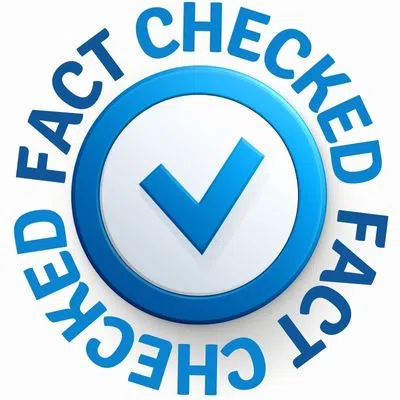
Fact Checked By Experts
This is original content and has been diligently fact checked by our internal team of experts. Discover more about the rigorous editorial standards we uphold for our website here.

About The Author
Hello! I am Corinne, a graduate of Riverside College. My career has evolved into focusing on writing, where I deliver high-quality and meticulously researched content. I have a proven track record of developing helpful articles that engage a wide variety of readers.


